Spelling improvement Normal Alphabet Worksheets for Ages 3-8
6 filtered results
-
From - To
Boost your child's spelling skills with our Spelling Improvement Alphabet Worksheets, designed for ages 3-8. These engaging, educator-authored worksheets incorporate fun activities that help young learners practice and perfect their spelling through repetition and exercises. Each worksheet focuses on different letters and words, facilitating gradual learning. With colorful and interactive formats, kids stay motivated and entertained as they enhance their alphabet recognition and spelling accuracy. Perfect for home or classroom use, these worksheets provide a strong foundation for early literacy development, ensuring your child’s success in reading and writing. Check out our collection today and watch them grow!
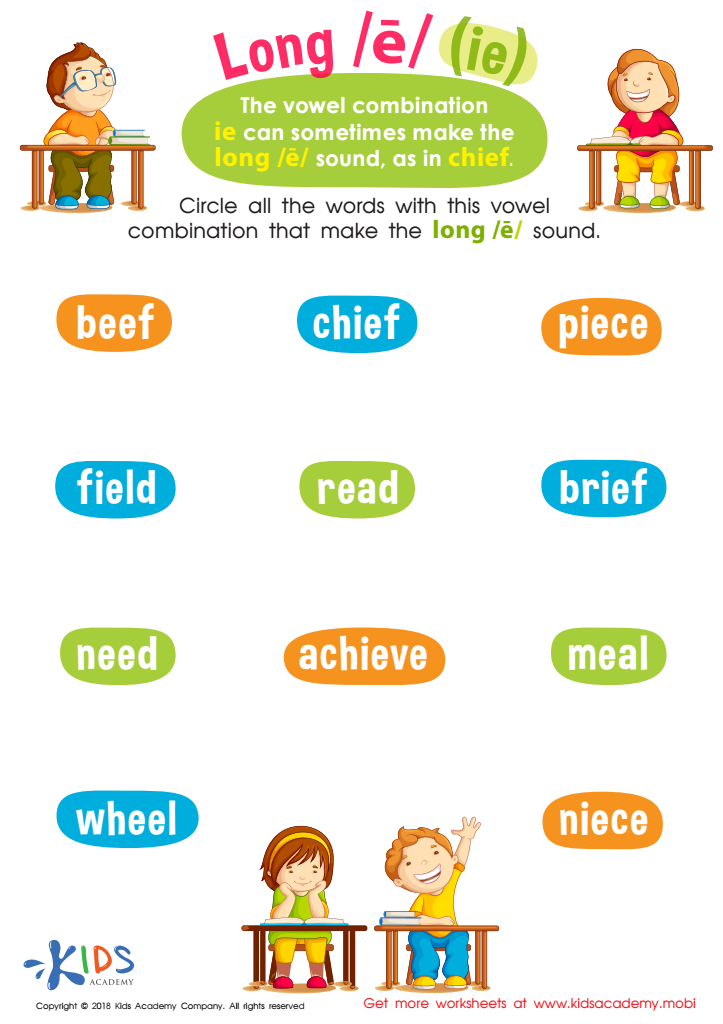

Reading: Long E and IE Worksheet
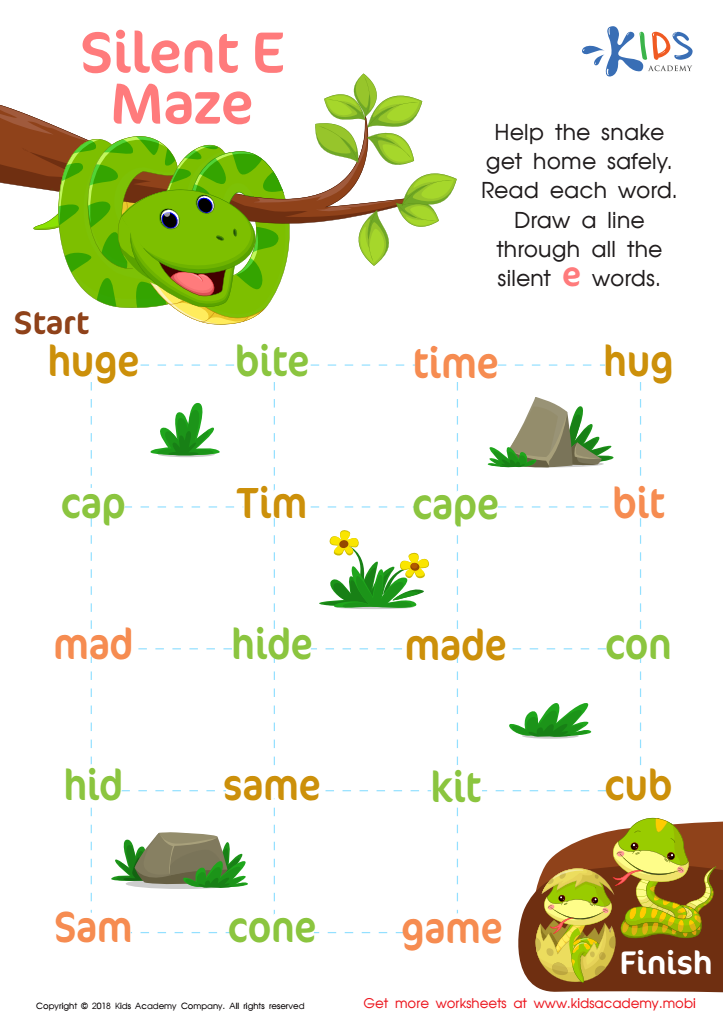

Silent E Maze Worksheet
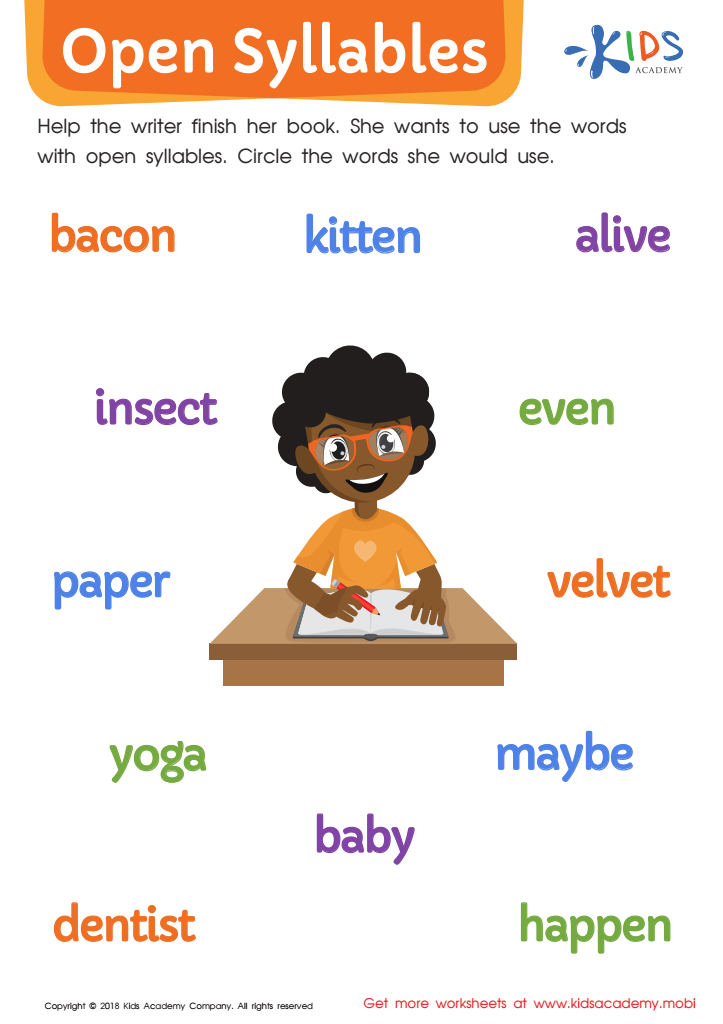

Open Syllables Worksheet


Twin Onset Worksheet
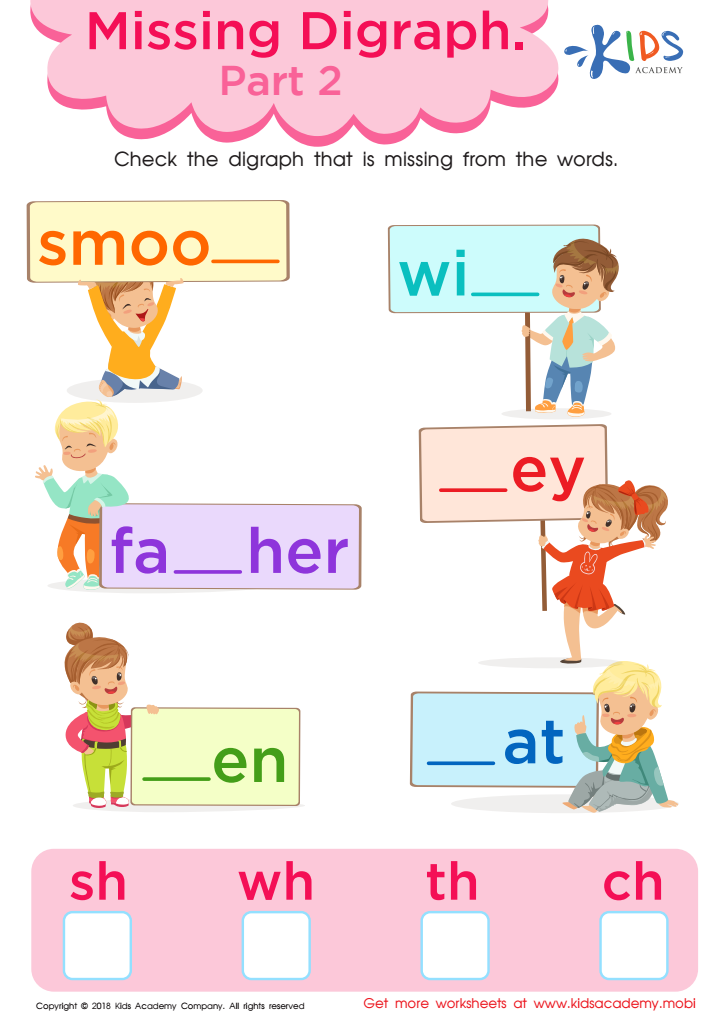

Missing Digraph: Part 2 Worksheet
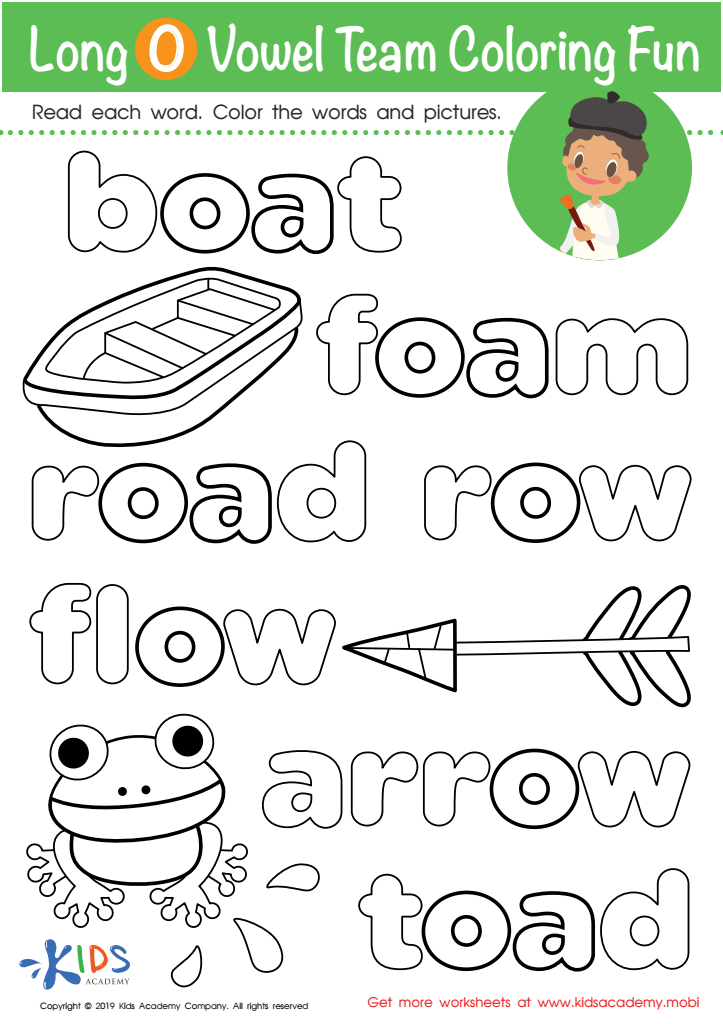

Long O Vowel Team Coloring Worksheet
Spelling improvement using the normal alphabet for ages 3-8 is critically important for several reasons. At this early stage, children's brains are highly receptive to learning and establishing foundational skills that will support their overall academic growth. Firstly, strong spelling abilities contribute directly to improved reading skills. When children recognize and spell words accurately, they are better able to decode and understand new words, enhancing their reading comprehension.
Furthermore, spelling serves as the building block for effective writing. By mastering spelling, young learners gain the confidence to express themselves clearly and creatively in written form. This is essential not only for academic success but also for day-to-day communication.
Additionally, confidence in spelling boosts children's self-esteem. Encountering fewer mistakes when they write encourages them to tackle more complex tasks with optimism. It also fosters a love for learning by reducing frustration and making educational activities more enjoyable.
Finally, developing good spelling habits early helps to standardize learning expectations and minimizes confusion, promoting consistency across educational settings at home or school. With strong spelling skills, children are better prepared for future educational challenges, making it a pivotal component of their early learning journey.

 Assign to My Students
Assign to My Students














